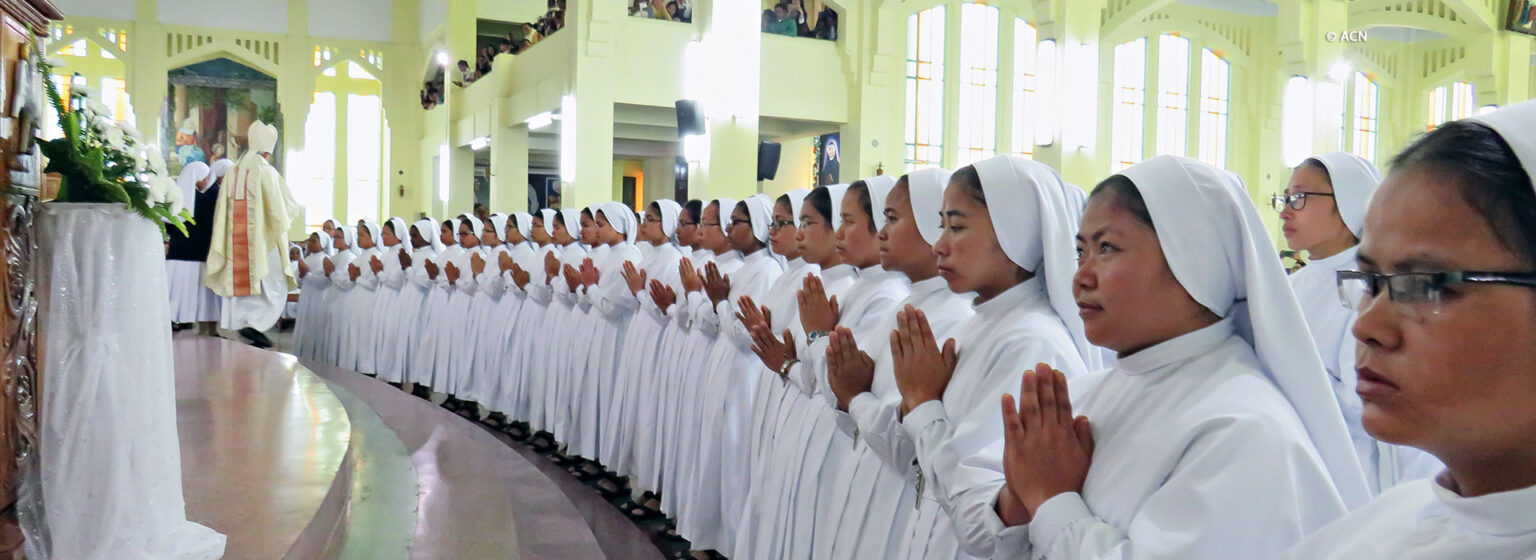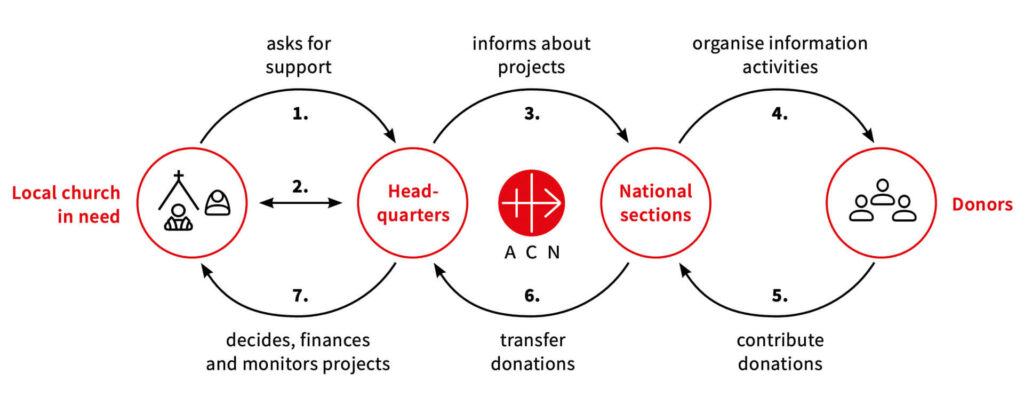
The starting point for our aid is a close dialogue with local churches.
At 30.2%, Africa was once again the priority region for our aid projects in 2024. The situation is particularly dramatic in places where Islamist terror is spreading and Christians are victims of persecution and displacement, such as in Mozambique, Burkina Faso and Nigeria. At the same time, the number of faithful and vocations to the priesthood and religious orders continues to rise.
18.7% of our aid was devoted to Asia (including 0.9% for Oceania), where Christians form a minority in most countries and are discriminated against or even persecuted. For example, we increased the level of our aid to Pakistan.
The funding volume for the Middle East represented 17.5% of our total aid. The focal points in 2024 continued to be Syria and Lebanon. By providing emergency aid and strengthening pastoral care, our aim is to help ensure the survival of Christian communities and counteract the massive exodus of Christians.
Latin America accounted for 16.8% of our total aid, as rural exodus, migration, sects and governments hostile to the Church are major challenges here.
In 2024, we continued to receive a large number of requests for support from Ukraine, where the Church, in the midst of war, is trying to alleviate the spiritual, psychological and material needs of those who have fled and are in need. Therefore, in 2024, 8.9% ofour funds went to Ukraine. Our aid for Europe totalled 15.9%.
Worldwide Projects
Papua New Guinea
Papua New Guinea is the third largest island nation in the world. In some parts of the country, the Catholic Church has only been present for a few generations. Nevertheless,...
Philippines
The Philippines is the only majority Christian country in Asia. More than 80% of the archipelago’s 109 million inhabitants are Catholic. In 2021, the Church in the Philippines celebrated the...
Indonesia
In Indonesia, the world’s largest Muslim nation with 272 million inhabitants, the coexistence of religions has been largely peaceful until now. However, recently there have been increased attacks by conservative...
India
With almost 1.4 billion inhabitants, India has the second largest population in the world. The Hindu majority population often discriminates religious minorities such as Muslims (14.5%) and Christians (4.9%). Church...
Nepal
Nepal is marked by its geographical location in the Himalayan mountains. Many different ethnic groups make up the population. The majority of the 30 million inhabitants are Hindus. About 8,000...
Pakistan
In the Islamic Republic of Republic of Pakistan, 96.4% of the 208 million inhabitants are Muslims. Religious minorities often suffer massive discrimination. The rise of abductions, forced marriages and forced...
This is how donations become concrete aid for Christians in need
For 77 years, our professionalism, transparency, effectiveness, and efficiency have ensured that our benefactors’ donations have the best possible effect precisely where they are most urgently needed: among local churches in need.

- The need for project aid arises in a place where the Church sufers from poverty or persecution. The diocese or parish forwards the project to ACN (Aid to the Church in Need) headquarters in Königstein, Germany, with a recommendation from the local bishop or supervisor.
- The head of section for the region analyses the project. If necessary, he or she then asks for further information. Within a maximum of three months, ACN headquarters confirms whether the project has been approved or not.
- ACN headquarters informs the national offices about projects for local fundraising and financing through benefactors.
- The offices organise information and awareness-raising measures so that donors may support the projects.
- Benefactors feel inspired to join in and donate.
- ACN’s national offices transfer the charitable contributions to ACN headquarters.
- ACN decides on projects and their funding, then tracks and monitors their implementation.
Between one and six months after the approval of the project has been granted, ACN assumes the costs for the approved project. In emergencies, ACN headquarters provides immediate funds.